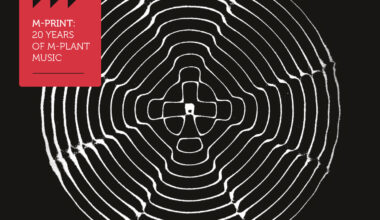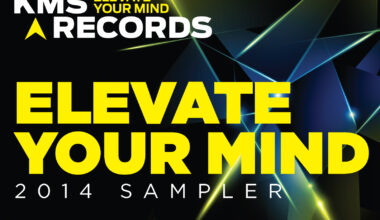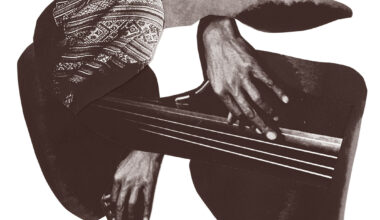We Got Ourselves A Situation

Sepia-tinted documents from the Jazz Age seem to present the 1920s as a time of unbridled good fortune and optimism. It may have started that way, but it was in fact a decade that saw unprecedented economic turbulence and the foundation stones of World War II. The Roaring Twenties it may well have been dubbed, but for all but the most privileged it was utterly ruinous.
But that was a hundred years ago and everything’s rosy now, right? With ‘A Situation’, released right at the start of our own 20s, Wrangler viciously document the current state of play and it makes for uncomfortable listening. The third album from Stephen Mallinder, Ben Edwards (Benge) and Tunng’s Phil Winter finds the trio systematically profiling the sundry challenges ahead of us with a record that falls somewhere between an angry call to arms and a jaded, disappointed aura. One that suggests that anything we do now is probably too little, too late.
So if this truly is the end of days, why does it sounds so damn funky? Whether through themes of simmering social tension, algorithmic vote-influencing alchemy, resurgent nationalism, the tribal nature of modern politics or the urgent need for climate action, ‘A Situation’ arguably should be a miserable, brooding affair.
Somehow, it isn’t. Songs like the urgent title track or the grimy, questioning ‘Anthropocene’ pulse with a sinister, dissonant edge but it’s the spaces you have to watch. Those spaces, those silences, are what give these tracks their springy, unpredictable energy, always something of a challenge with the ostensibly clinical, disciplined synthesiser. There are few moments where the tracks get bogged down by layers and layers of sound. Instead they gently build, morphing into something solid, only occasionally touching a sense of euphoria, but one which is swiftly dismantled – there’s little to celebrate here, after all.
Mal’s repeated refrains and vaguely whispered delivery adds a conspiratorial, observational, detached and emotionless dimension to proceedings, leading to a nauseating, uneasy, brilliant tautness between his muted voice and the skittish, wonky electronics of Benge and Winter.
‘How To Start A Revolution’ is one of the many choice moments on ‘A Situation’. Its sparse, brittle melodic minimalism sits adjacent to rough-edged noises and rests atop a slowed-down vintage electro rhythm. The song’s unstoppable progress is among the most machine-like of tracks on the album, nag-nag-nagging at you with a veritable panic-inducing, destabilising robotic relentlessness. It’s only when you tune into Mal’s vocal that you realise you’re listening to extracts from the Haynes Manual of modern revolutions, namely state-sanctioned, digitally-curated, low energy and thus ultimately toothless. There is no fire, no urgency left within us – just futile agitation exemplified by overflowing street bins loaded with throwaway slogans attached to rudimentary placards. To capture that disappointment so adroitly is testament to the way Wrangler are able to isolate and expose scarcely-documented societal issues.
‘Machines Designed (To Eat You Up)’ is another such moment. Ostensibly a breezy, bouncy electropop track replete with vocoders, after a while the song develops febrile tendrils evoking the infiltration of technology into our everyday lives. But not the advent of the Wi-Fi-enabled fridge or the dead-eyed dependency on social media to get your daily fix of essential cat pics. It’s the troubling battlefield of digital warfare, the thought-controlling manipulations, the forced homogeneity of individual expression and the vague notion that even as these words are being written, someone, somewhere is using a loophole in privacy settings to read them all. As Mal sings on the subdued house gyrations of ‘Mess’, “It’s a fucking mess,” and he is, of course, spot on. Then again, he’s been predicting these things since right back at the start of the Cabaret Voltaire days – we all just hoped none of them would come to pass.
The biggest departure here comes in the form of ‘White Noise’ that concludes the album. As a depiction of our modern slavery to bytes, likes and status, ‘White Noise’ is profoundly and disturbingly accurate, being directly inspired by Ballard’s horrifying ‘The Atrocity Exhibition’. “The sound of a thousand insects, buzzing, pushing deep inside your head,” speaks a concerned Mal with a visceral vividness, capturing the chaotic synaptic creep show of modern data-dependency. His bleak poetry is placed within a web of scratchy non-rhythms, a haunting motif and atmospheric ambience finally coalescing into a subdued, terminal waltz. Roaring probably won’t be the adjective we use to describe the 2020s.





